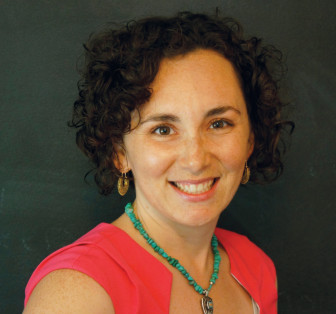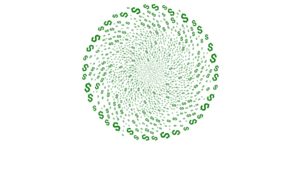
fizkes/Shutterstock
.
The other day I attended a diversity training at work. The facilitator talked about who and how we hire. She said something that really stuck with me: You get hired based on who you know; you get promoted based on who knows you.
This is true in my own life. Since setting out in the nonprofit world, getting jobs has had a lot to do with who I knew, what they knew about me and what they perceived to know about me because of my affiliations. In the beginning there was a bit of good fortune. When I applied to college and later to Teach For America (TFA), I did not have the advantage of powerful networks, but I did have a compelling personal story.

Stephanie Malia Krauss
My social network grew immensely in TFA — and even more when I later attended a top graduate school. These programs built my knowledge and skills and greatly inflated my social and professional credibility. People would often meet with me just because I was a part of TFA or a Washington University alum. Later on, career opportunities were secured because of my reputation and other people’s recommendations. Knowledge and skills were important, but my connections sealed the deal.
If we are serious about getting young people ready for the real world then we have to recognize how much relationships and networks matter. Too often we tell young people to finish high school, go to college and get the credentials to show for it. For those living in poor communities, we too often focus rhetoric and supports on completion, less on building competence and almost nothing on building connections. For a young person to succeed, we have to do all three.
Ask any leader how she got to where she is and I guarantee she will tell you about the people who seemed to be at the right place at the right time, helping her along the way, opening doors, vouching for her, giving her chances and offering support.
As a field, we know relationships matter. Any good youth worker will tell you about the power of a caring adult in a young person’s life. The problem is we don’t take that idea far enough. Not just any caring adult will do, and one alone will not suffice. In my work, I have found three types of relationships young people need to make it in college, work and life. I call these lifelines, door openers and navigators.
Lifelines
Lifelines are people who have your back, no matter what. Their role is to cheer you on, pick you up and push you forward when you want to quit. Lifelines can be friends, co-workers, mentors, clergy, counselors, teachers, coaches or family members. They offer safety and stability, helping us take good risks and go after what we want. These are the people who encouraged you to apply for the job you wanted or told you you were smart enough to go back to school. They have helped you prepare for interviews and processed important conversations. We look to lifelines for love and support.
When I was a teenager, my most important lifelines were my school counselor and friends. They believed in me when I didn’t believe in myself. Now, they are moms dealing with the stresses of being working parents, and older moms whose kids are grown, and whose lives and career paths I hope to emulate.
Lifelines do not need to widen a young person’s professional or educational circles per se. They just need to be there, meeting the young person where he or she is, offering love and support along the way.
Door Openers
Door openers do not need to be in your life for long. A door opener might be a lifeline (or become one later) but doesn’t have to be. This is someone who helps you get a better opportunity. Door openers are social mobilizers, introducing or integrating you into their own networks and groups, giving access to new social and economic advantages.
We all need door openers. They help us learn about and get into opportunities that might be closed or unknown to us otherwise. I think about door openers like cash. The more you have, the more you can get. This could be some of the logic behind LinkedIn. It matters how many degrees of relationship sit between you and the boss, or you and a bigger boss somewhere else where you want to be. For the rich and resourced, LinkedIn lives offline. It is a phone call or a coffee meeting.
Lack of door openers can inflame disparities. Those born to affluent and successful parents inherit powerful door openers. In these cases, it has less to do with talent and more to do with who your family is, where you are from, and what groups you or your family belong to. If we go back to my trainer’s adage that you get hired based on who you know, and you get promoted based on who knows you, then those who are connected to successful people are most likely to get prime education and work opportunities. Additionally, the data is overwhelming that powerful networks are more prevalent among men than women, and whites than people of color.
In my own life, I have benefited from the boon that comes from tapping into powerful door openers. While I did not grow up wealthy, I ended up in alumni networks full of rich and powerful people. These affiliations pay continuous social and financial dividends, often without my having to do anything. Through newsletters, receptions and specially curated job boards, I have access, at any time, to competitive positions whether I want them or not. These are opportunities that many who only have access to public job search sites will never know exist.
Recently I heard a story about a young black woman who spent much of her time in business school attending networking events. She and other classmates of color were aggressive about seeking internships, attending happy hours, applying for fellowships and pursuing leads. In the end, after all that “networking hustle,” she and her friends graduated with good jobs.
Meanwhile, many of her white and wealthier peers did not attend networking events and cared less about internships than summer vacations. But in the end, they also graduated with jobs. Their offers came through people they already knew or people their parents knew. Before graduation, calls were made, lunches were set up, and offers were aided by inherited networks, with little or no need for formal networking.
Navigators
Navigators are the third type of relationship we need to make it. Navigators are people who help us figure out how an education, employment or other opportunity works. Navigators can be counselors, mentors, supervisors or advisors. They can be self-appointed or assigned. In school, navigators might be someone older, a counselor, a student leader with a similar background, or even a caring teacher or professor.
In the workplace, navigators can be colleagues from the same department or location who have been there longer. Navigators help us understand the culture of a place, what to expect and what is expected of us. Navigators might become lifelines, but don’t have to. Think of a navigator like a docent. We can go to them to ask what something means, where something is or how to get something done.
Navigators can play a powerful role in lending their own social capital to a young person once he or she is in the door. If a young person does not have the relationships and networks already built within a place, his navigator can “sponsor” him — providing status that wouldn’t be there otherwise.
In my own life, navigators have helped pave the way. I have been lucky to build a treasured “kitchen cabinet” full of experienced leaders in our field who have mentored and advised me throughout my professional journey. Here’s how it works: When I meet leaders who seem to know what they are doing and are thriving in roles that I have or want to have, I ask if they will advise me, sometimes overall, and other times just on specific topics like human resources or how to fundraise.
On one occasion, an early navigator became close enough to be dubbed “Grandpa Jim” by my children. He definitely transitioned from navigator to lifeline. On most other occasions, navigators help me figure out specific problems or provide support on a particular issue or over a defined period of time.
Relationships Matter and Types Matter Most
Connections may serve as the most valuable currency young people can acquire and use in adulthood. They are powerful on their own and they make other currencies even more valuable. You might need a college credential to qualify for a job, but a Harvard degree will make you a top candidate. Cash can be used to buy things, but when it is used to purchase a membership, it can elevate your status and expand your perceived economic worth. Being competent is necessary for getting the job done, but having a great reputation is the best way to get promoted.
We should all commit to better understanding the role lifeline, door opener and navigator relationships play in getting young people in and ahead. Building young people’s networks and relationships should be a non-negotiable and integral part of any serious education or workforce development effort.
And, to be clear, all three types of relationships matter. It is just as important to make sure young people have love and support (lifelines) as it is to make sure they have access to great opportunities (door openers). None of that matters if they can get in but don’t know how to play the game once they are there (navigators).
This is most important for young people of color and those with little money. These young people may not even realize they lack the kinds of relationship capital their wealthier and whiter peers bring to the table. We have a responsibility to make sure they enter adulthood with the kinds of social currency they really need to succeed.
At Jobs for the Future, we have a long history of working to promote the types of credentials and competencies young people will need to make it. Now we are thinking more seriously about the role relationships and networks play, and how that changes our own work.
If you are looking for a place to start, check out my good friend Julia Freeland Fisher’s new book, “Who You Know: Unlocking Innovations that Expand Students’ Networks.” Julia and her co-writer, Daniel Fisher, explore what it looks like when schools and learning environments use technology and other new solutions to build and expand young people’s networks.
Stephanie Malia Krauss is the director of special projects at Jobs for the Future, focusing on cross-systems approaches to the economic advancement of vulnerable populations, including student-centered learning. She was previously a senior fellow with the Forum for Youth Investment and Corporation for a Skilled Workforce.































